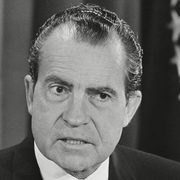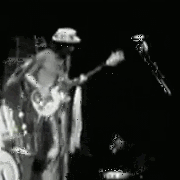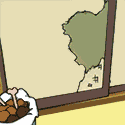Ofaloaf posted:You mean, parties like the Greenbacks, Populists, Socialists and Progressives (three of them)? The thing with them was that as soon as they started sweeping national elections, either the Democrats or Republicans would adopt some of the more moderate planks of whatever third party was popular at the time, pass some token bills and subvert the third party's support and momentum. Sometimes the third party would get sucked into one of the two parties (William Jennings Bryan, mentioned above, was a Populist who ended up a Democrat in Woodrow Wilson's administration) or become the core of the next third party movement. It's worth noting that WJB was the Democratic candidate for president three times before that. He was never part of the Populists as such. He was certainly on the populist side of the party, but he was a very Obama-like figure - young, "hope and change", elevated by a great speech at the DNC, etc. We'll never know how much of Campaign Bryan would have made it into President Bryan.
|
|
|
|
|

|
| # ? Apr 23, 2024 07:21 |
|
TNR has a really good satire today of Politico trying to cover the Civil War.quote:POLIT-ICO Play-Book, presented by UNION-PACIFIC RAILROAD – JAN 1, 1863 EDITION -- -ROSCOE CONKLING NEW YEAR’S PARTY -- Democrats livid over ‘Caesar’ Lincoln executive power – New aide-de-camp for Gen’l Sherman -- 250 years of chattel slavery to end -- JEBEDIAH ALLBRITTON IS 81! -- POLIT-ICO PRO launches reconstruction-contracting vertical If you don't get it, this is what they're making fun of.
|
|
|
|
Jazerus posted:It's worth noting that WJB was the Democratic candidate for president three times before that. He was never part of the Populists as such. He was certainly on the populist side of the party, but he was a very Obama-like figure - young, "hope and change", elevated by a great speech at the DNC, etc. It's sad how people only remember Bryan for the Scopes Trial when he stood for so much more then that. Also if anyone's curious I wrote a post in the Pictures thread a while back that relates to this thread.  We've all seen that picture of Harry Truman but how many people today know who Dewey is? Thomas Edmund Dewey was something rare these days: a liberal Republican. Or, less charitably "that little man on the wedding cake" Dewey's fame began in 1935 when he was named Special prosecutor in Manhattan. Dewey targeted gangsters such as Lucky Luciano, New York Stock Exchange president Richard Whitney, and American Nazi Fritz Kuhn. In 1942 Dewey ran for New York governor and won. To quote Wikipedia. quote:Usually regarded as an honest and highly effective governor, Dewey doubled state aid to education; increased salaries for state employees; and still reduced the state's debt by over $100 million. Additionally, he put through the first state law in the country that prohibited racial discrimination in employment.Dewey also signed legislation that created the State University of New York. He played a major role in the creation of the New York State Thruway, which was eventually named in his honor. Dewey began to contemplate a run for President but found himself attacked by Bob Taft, head of the Republican Party's conservative faction. Dewey attacked Taft saying: quote:"We have in our party some fine, high-minded patriotic people who honestly oppose farm price supports, unemployment insurance, old age benefits, slum clearance, and other social programs...these people believe in a laissez-faire society and look back wistfully to the miscalled 'good old days' of the nineteenth century...if such efforts to turn back the clock are actually pursued, you can bury the Republican Party as the deadest pigeon in the country." In 1944 Dewey gained his party's nomination against FDR. In 1948 Dewey gained the nomination against President Truman. Dewey was a supporter a bipartisanship and attempted to run a positive campaign, avoiding directly attacking Truman. While noble it made for bland speeches. A newspaper wrote: quote:No presidential candidate in the future will be so inept that four of his major speeches can be boiled down to these historic four sentences: Agriculture is important. Our rivers are full of fish. You cannot have freedom without liberty. Our future lies ahead. Dewey faced off in the primaries against Harold Stassen where when asked if the American Communist Party be banned... quote:"There is no such thing as a constitutional right to destroy all constitutional rights. quote:Dewey criticized Stassen's position, commented that "you can't shoot an idea with a gun."[3] He remarked that a criminalization of the party would itself be totalitarian, and would advance the cause, arguing that it would be best to keep the movement in the light of day to counter the ideas in public discourse http://www.davidpietrusza.com/dewey-stassen-oregon-debate-1948.html Here's some of the more interesting parts of the 1948 Republican Platform http://www.presidency.ucsb.edu/ws/?pid=25836.#axzz2hZLFEUrZ quote:Our competitive system furnishes vital opportunity for youth and for all enterprising citizens; it makes possible the productive power which is the unique weapon of our national defense; and is the mainspring of material well-being and political freedom. Of course Dewey lost the election. After 1948 Dewey more or less left politics but returned in 1964, disgusted at the rise of Barry Goldwater and gave Lyndon Johnson advice during the election. In 1968 he was offered the Chief Justiceship of the Supreme Court but declined, he died in the next few years. In closing here, have Dewey with some dudes dressed as cavemen and a 1944 Dewey anti-democrat poster.   Here's a pretty good CSPAN program on Dewey http://thecontenders.c-span.org/Contender/9/Thomas-A-Dewey.aspx Nckdictator fucked around with this message at 22:34 on Oct 28, 2013 |
|
|
|
How are u posted:Yep. The shift started a bit before the Civil Rights era but that legislation was the nail in the coffin for Democrats in the South. Republicans cynically saw the opportunity to cater to the racist, white, disaffected Southern voter and did so with gusto. It really is quite remarkable how quickly it all happened, and just goes to show how utterly terrified Southern whites were of losing their power when the Fed finally stepped in and said "OK, this Jim Crow poo poo you've been doing for nearly a century has just got to end." It's probably also worth noting that the shift was the following: Democrats: poor whites and especially rural and union types Republicans: Big business and token minorities to this: Democrats: poor people in general but especially minorities Republicans: Big business and white people Nationwide, there wasn't a big push for minority (read: black) rights until about the 1950s-60s, the shift was from a class divide to a race divide (which coincidentally is also fairly classist). Edit: It should also be mentioned that there were shifts in the 80s so that the Democrats were more friendly to big business, and that has been a direct contribution to the shrinking of the Republican Party. computer parts fucked around with this message at 22:40 on Oct 28, 2013 |
|
|
|
Barudak posted:Progressives/Populists existed and were hugely influential. They didn't get everything they wanted (Bi-metallic currency being one of their sillier demands) but they did get things like the 17th amendment passed which allowed for direct elections of senators. Like all 3rd parties in the US they got swallowed up and their views diluted into the mainstream discourse but things like the anti-trust act and other bills were at least born from their ambitions. The Progressives are later, and less radical. They're much more an urban response to the problems of cities and corporate monopoly, shown by their concern with urban issues such as municipal government and immigration reform. They're very keen on democracy and destroying the 19th century political system of spoils, patronage, and urban machines and replacing it with direct elections and democratic government. The Progressives also were characterised by the use of a rudimentary 'social science' (including eugenics) as a basis for policy. They're both responses to fundamentally the same problems (weak government, corporate power, vested interests) but they come from very different perspectives. The Progressives achieve a lot more because as you say the agrarian Populists are not on the winning side economically, as agriculture continues to go down the toilet apart from a brief interlude of high prices during WWI.
|
|
|
|
Nckdictator posted:
Truman's win of this election is particularly unusual because the Democrats were split up by...  who managed to pull three state's electoral votes out of the Democratic column...  Despite even their own concession that Thurmond's campaign went too far with classic quotes like Strom Thurmond, 1948 convention posted:"There are not enough troops in the army to force us to allow the friend of the family race into our homes, schools, churches..." It is a real testament to Truman's ability to campaign tirelessly and endlessly that he scraped it out the way he did. BrotherAdso fucked around with this message at 00:15 on Oct 29, 2013 |
|
|
|
BrotherAdso posted:Truman's win of this election is particularly unusual because the Democrats were split up by... Former vice president Henry Wallace also ran for president on the Progressive Party line and took in about as many votes as Thurmond did. That 1948 election really was unbelievable. The equivalent today would be something like Mitt Romney pulling through even though Ted Cruz and Chris Christie ran third party campaigns.
|
|
|
|
Nckdictator posted:It's sad how people only remember Bryan for the Scopes Trial when he stood for so much more then that. You can't mention Bryan without posting this: http://history.msu.edu/hst203/files/2011/02/Mencken-In-Memoriam-WJB.pdf When it comes to writing red meat for people with views similar to SilentD's, you can't get much better than Mencken. quote:Pretty unfair in retrospect, though.
|
|
|
|
What the hell is up with Georgia going Democrat and not Dixiecrat? It's weird how it seems to stop at the state line. I would say they weren't on the ballot but there's that little cluster of Dixiecrat around Augusta. I wonder if it was related to the Three Governors Bullshit quote:In December 1946, Eugene Talmadge, the governor-elect of Georgia, died. The state constitution did not specify who would assume the governorship in such a situation. The situation became known as the three governors controversy. Eventually a ruling by the Supreme Court of Georgia settled the matter. Changing the locks - not just for lovely roommates and crazy ex-partners! The Georgia Supreme Court ruled that a special election would be held in November 1948. It was probably such crazy knife fight for the special election that the candidates had to drop the segregationist poo poo and run on their own merits, which would leave less of a link for a regional segregationist platform. Much easier to appeal to the built in massive Democratic support at the time. Probably still lots of racism inherent though, it's not like Eugene Talmadge was a nice guy or anything: quote:Talmadge returned to the governor's office in 1940, emerging as the leader of racist and segregationist elements in Georgia. Responding to reports that Walter Cocking, a dean at the University of Georgia, had advocated bringing blacks and whites together in the classroom, he launched an attack on the university, charging elitism, and called for the regents to remove Cocking and purge the university of Communists, "foreigners" (non-Georgians), and subscribers to racial equality. The university board of regents at first refused Talmadge's demands for dismissal of offending faculty members, but after the governor restructured the board, the dismissals took place. This intervention into academic affairs caused the Southern Association of Colleges and Schools to remove accreditation from the Georgia state universities, and it contributed to Talmadge's defeat by Ellis Arnall in 1942. boner confessor fucked around with this message at 00:34 on Oct 29, 2013 |
|
|
|
Silver2195 posted:
I can see where it came from, seeing as though southern Dems were basically "The Confederacy Party," but it was those Southern racists that a) fought against Truman on all sorts of civil rights issues he pushed and b) formed the core of the Dem power base in congress. They had a similar problem to the GOP today in that if it had a hope of passing it needed to get past a few score of lovely racists.
|
|
|
|
Nckdictator posted:It's sad how people only remember Bryan for the Scopes Trial when he stood for so much more then that. I've seen him mentioned in reference to the cross of gold speech actually a bunch of times ever since gold obsessed libertarians have become more of a thing with the rise of Ron Paul. Granted though when I say seen I mean on the internet. The Daily Show made an offhand joke about WJB and the cross of gold speech some months back as well.
|
|
|
|
Emanuel Collective posted:Former vice president Henry Wallace also ran for president on the Progressive Party line and took in about as many votes as Thurmond did. That 1948 election really was unbelievable. The equivalent today would be something like Mitt Romney pulling through even though Ted Cruz and Chris Christie ran third party campaigns. Speaking of Henry Wallace, he was almost the 33rd president of the US instead of Truman and out of every other "might have been" in the last century it's probably the one I wish happened the most. He was FDR's choice for VP in 1940 even though the conservative side of the democratic party (most of whom were southerners) hated his appointment and so in 1944 in an effort to not have to deal with their poo poo anymore FDR replaced Wallace with Truman to appease them. He went on to become the secretary of commerce in the Truman administration until he was forced to resign because he not only didn't favor rebuilding Europe and England (which meant Churchill loving hated him) over Russia, but he was also incredibly soft when it came to anti-communism thinking that instead of having a cold war the east and west should duke it out economically and may the best man win. Think about it like this, if Wallace is the President in 45 instead of Truman, it's very likely Hiroshima and Nagasaki are never nuked, the US honors it's post war deals with Russia so no cold war or arms race ever happens, the Civil Rights act is actually passed shortly after WW2 instead of having to wait 20 more years, Operation Ajax never happens, the domino theory never takes root so Vietnam never happens, and america doesn't not become imperialistic post WW2. In 1942 Wallace lays out his vision of a future that never was in his "Century of the Common Man" speech. 
|
|
|
|
A Winner is Jew posted:Speaking of Henry Wallace, he was almost the 33rd president of the US instead of Truman and out of every other "might have been" in the last century it's probably the one I wish happened the most. He was FDR's choice for VP in 1940 even though the conservative side of the democratic party (most of whom were southerners) hated his appointment and so in 1944 in an effort to not have to deal with their poo poo anymore FDR replaced Wallace with Truman to appease them. He went on to become the secretary of commerce in the Truman administration until he was forced to resign because he not only didn't favor rebuilding Europe and England (which meant Churchill loving hated him) over Russia, but he was also incredibly soft when it came to anti-communism thinking that instead of having a cold war the east and west should duke it out economically and may the best man win. Wallace's opposition to the Cold War would have had a lot of downsides too, though. The Marshall Plan and Berlin Airlift can hardly be considered bad things. It also seems reasonable to suppose that without a Cold War, the Soviet domination of Eastern Europe would have lasted longer. Also, the Civil Rights Act wouldn't have been passed if we assume the makeup of Congress would have been similar. Silver2195 fucked around with this message at 01:44 on Oct 29, 2013 |
|
|
|
Popular Thug Drink posted:What the hell is up with Georgia going Democrat and not Dixiecrat? It's weird how it seems to stop at the state line. I would say they weren't on the ballot but there's that little cluster of Dixiecrat around Augusta. I wonder if it was related to the Three Governors Bullshit While doing research for other things, I've read a ton of Georgia newspapers from the 1940s-60s. I've seen nothing in regards to Dixiecrat Party influence. Thurmond must not have tried any campaigning. Perhaps the Roosevelt influence, little White House and and all, was enough to automatically trust Truman. Arnall would make another strong run in 1966 and almost get a Republican governor in office. Georgia Democrats were already split to hell with Arnall, Lester Maddox, a fresh Jimmy Carter, and ardent racist and media boss James H. Gray in the running. Maddox got the nod because of influence. At that time, the Democratic win was considered a state win because south, Democrats, yeah. However, Arnall became a write-in candidate and split Maddox's vote enough that Bo Callaway almost made it. That went to the House and the extremely Democrat House voted Maddox. Now, George Wallace got good third party support in Georgia. He actively campaigned.
|
|
|
|
Thurmond only won the states where he got the official endorsement of the state's Democratic Party. He finished a distant second in Georgia- it was something like Truman 60, Thurmond 20, Dewey 18. This was still a better showing than in any other state that he lost. Also, Truman wasn't even on the ballot in Alabama.
|
|
|
|
Does anyone know much about the Iroquois League, and more broadly, stories that go against the thought that the native Americans were simple, nomadic tribes who unfortunately got caught up in The Progress and couldn't adapt? I read a crash course on the subject, and it really surprised me how much the foundation of the country was inspired by native ingenuity instead of European. For example, the Bill of Rights more closely aligned with native American principles of equality that were layed out by the Iroquois League. The rest of the constitution shows the more European policies, such as "I don't know what/who that is, therefore I loving own it."
|
|
|
|
When it comes to Native American facts running contrary to stereotypes, I still remember being startled when I first read about early Cherokee willingness to adapt to Southern society, going so far as to become plantation owners and slaveholders themselves. Hollywood told me that Indians were simple people, pure of heart, who would never stoop to such lows as slavery.  It's also worth brining up Sequoyah. I know little about him beyond what Wikipedia covers, but the dude invented his own alphabet for the Cherokee and that thing is still in use today, and that's cool.
|
|
|
|
Volkerball posted:Does anyone know much about the Iroquois League, and more broadly, stories that go against the thought that the native Americans were simple, nomadic tribes who unfortunately got caught up in The Progress and couldn't adapt? I read a crash course on the subject, and it really surprised me how much the foundation of the country was inspired by native ingenuity instead of European. For example, the Bill of Rights more closely aligned with native American principles of equality that were layed out by the Iroquois League. The rest of the constitution shows the more European policies, such as "I don't know what/who that is, therefore I loving own it." This is a fascinating, and huge, topic. Broadly, we can subdivide what you're talking about into: 1) Studies of "borderlands" between colonial societies and white societies. These have been in scholarly vogue for the last decade plus, and are really a great field. They study the interchanges of people, ideas, and language taking place at meeting sites, especially stable and long lived meeting sites, between native societies and colonials. These are great and reveal the way individuals and their social identities were exceptionally malleable, like the murder trials which led to the Pequot War in the early 1600s. 2) The "Iroquois thesis," which supposes some influence of he governmental and social arrangements of the Iroquois over the US Constitution and Articles of Confederation. This is not widely regarded as a serious academic idea today, but Iroqouis influence on Ben Franklin's Albany Plan of Union is more credible. 3) Studies of Native American material culture and the impact of their agricultural, geographic, and ecological legacy and effect on the colonies. 4) "Cultural impact," which studies how the discovery and attempts to undestand/attack/convert/whatever Natives changed European societies and their ideas. Which of those are you interested in? The one I am best qualified to discuss is number 2.
|
|
|
|
Silver2195 posted:Wallace's opposition to the Cold War would have had a lot of downsides too, though. The Marshall Plan and Berlin Airlift can hardly be considered bad things. It also seems reasonable to suppose that without a Cold War, the Soviet domination of Eastern Europe would have lasted longer. The Marshall plan would still be in effect although it would have been expanded even further to not only eastern block countries but also to Russia so it's likely that the Russian domination of Eastern Europe (except Poland who's fate was already decided at Yalta) and the need for the Berlin Air Lift wouldn't have needed to happen either. Remember, most of the eastern block was formed after the Truman Doctrine was started in 1947 that took a very hard line both in propping up former English puppet states (like Turkey and Greece) and in supporting anti-communist factions no matter who those factions where. Wallace on the other hand wanted to continue the policy of detente started under FDR and one that the US later adopted during the Nixon administration.
|
|
|
|
A Winner is Jew posted:The Marshall plan would still be in effect although it would have been expanded even further to not only eastern block countries but also to Russia so it's likely that the Russian domination of Eastern Europe (except Poland who's fate was already decided at Yalta) and the need for the Berlin Air Lift wouldn't have needed to happen either. But Marshall aid was offered to eastern Europe, they rejected it because of Soviet pressure. I mean yeah it's possible without Truman the Soviets would've been more friendly and ready to accept the aid, but that's a big if. Soviet domination was going to happen to eastern Europe no matter who was president of the US in 1947, they had been wrecked by Germany twice in 25 years and never had a particularly great relationship with the west, they were creating that buffer of satellite states no matter what. It's unlikely Stalin would accept American aid regardless of who was president as it might have lessened the Soviet grip on eastern European nations.
|
|
|
|
Amused to Death posted:But Marshall aid was offered to eastern Europe, they rejected it because of Soviet pressure. I mean yeah it's possible without Truman the Soviets would've been more friendly and ready to accept the aid, but that's a big if. Soviet domination was going to happen to eastern Europe no matter who was president of the US in 1947, they had been wrecked by Germany twice in 25 years and never had a particularly great relationship with the west, they were creating that buffer of satellite states no matter what. It's unlikely Stalin would accept American aid regardless of who was president as it might have lessened the Soviet grip on eastern European nations. And it's pretty likely detente would have broken down due to other parts of the world anyway, like with the Chinese Civil War or the likely partitioning of Japan (and Korea et all). Edit: You also have to remember that Russian paranoia about the West did not start with Stalin; it had been a thing for at least a century prior to WW2. OwlBot 2000 posted:You mean: I see you missed my edit to that post. computer parts fucked around with this message at 04:31 on Oct 29, 2013 |
|
|
|
computer parts posted:It's probably also worth noting that the shift was the following: You mean: Democrats: Big business and minorities Republicans: Big business and white people Neither major party represents poor people of any color.
|
|
|
|
I don't see why Japan would be partitioned since the Soviets never had any serious presence on the Japanese home islands. I think that there's like one or two lovely islands off the eastern coast of Siberia that were technically Japanese that they occupied but that's it.
|
|
|
|
BrotherAdso posted:This is a fascinating, and huge, topic. Broadly, we can subdivide what you're talking about into:  I do know that the Iroquois had some influence on the writers of the Declaration of Sentiments, but I'm not sure how far that extended.
|
|
|
|
There was no way Stalin was going to honour the Yalta agreement and allow "free and fair" elections to occur in Eastern Europe so some kind of escalating political tension was basically guaranteed when the war ended. Even if the suppression of dissent in Eastern Europe hadn't lead to greater tensions between the USSR and USA, I'm pretty sure that following Mao's victory in China people would have gotten upset. Its also completely impossible to imagine a plausible scenario for how Vietnam, Germany or Korea could have been reunified - as was the plan during World War II - without one side or the other feeling they'd been screwed. The US government was also convinced that the only way it could avoid a return to depression was to ensure access to global markets for American products, something that necessitated an aggressive and imperialistic foreign policy. The Soviets, likewise, had every intention of expanding their influence in the foreign sphere. Imperialism was baked into the DNA of both the Soviet and the American Republics. Once they had become the sole superpowers in the world some kind of conflict between them was inevitable. I don't think you can reduce the start of the Cold War in the late 1940s to mere personality or a couple of mistakes.
|
|
|
|
Volkerball posted:Does anyone know much about the Iroquois League, and more broadly, stories that go against the thought that the native Americans were simple, nomadic tribes who unfortunately got caught up in The Progress and couldn't adapt? I read a crash course on the subject, and it really surprised me how much the foundation of the country was inspired by native ingenuity instead of European. For example, the Bill of Rights more closely aligned with native American principles of equality that were layed out by the Iroquois League. The rest of the constitution shows the more European policies, such as "I don't know what/who that is, therefore I loving own it." It's certainly important to know that the Iroquois League predated contact with Europeans, because a lot of people seem to believe that it was a response to contact with the powerful European nation-states. They were a power in the Americas, and were powerful enough to form treaties with the European powers rather than be conquered by them. But it's wrong to think that the Iroquois league was allied with Revolutionary interests -- actually it was harshly divided by the revolution, and many of the nations sided with the British crown against the Rebels. This led to the destruction of many Loyalist Iroquois settlements, the population of which was rewarded with land grants by the British in Canada for their services (for more on this you can look up the Sullivan Campaign). Essentially, they were broken apart not by lack of political skill or ignorance but simply because of numbers -- it became impossible to play sides against each-other and come out on top, as they had done in the past. Still, it was an empire that lasted through two centuries as a political player in the region; hardly the work of a "simple" people. Unfortunately, I don't believe most scholars accept that the Iroquois Great Law of Peace was directly responsible for the Constitution of the United States, as some have claimed; you're probably not going to get much out of that avenue.
|
|
|
|
I don't have any particular questions or answers, but I'm really hoping this thread takes off - it's been really interesting so far.
|
|
|
|
BrotherAdso posted:Truman's win of this election is particularly unusual because the Democrats were split up by... So what changed about the major West Coast metros that made them go Democrat between 48 and 64? And why was Seattle and SF less Republican than Portland and LA back then?
|
|
|
|
Fojar38 posted:I don't see why Japan would be partitioned since the Soviets never had any serious presence on the Japanese home islands. I think that there's like one or two lovely islands off the eastern coast of Siberia that were technically Japanese that they occupied but that's it. Sakhalin is one those (large) islands, and it actually had/has a great deal of oil on and around it. It was divided before WWII, between the Soviets in the north and Japanese in the South, beofre the Soviets occupied the southern half. The Kuril Islands are the other ones you're thinking of, and they were occupied by the Soviets too, which Japan is still pissed about to this day. 
|
|
|
|
Anyway, speaking of strange third party candidates, my favorite example is probably Harry Byrd. Not for his politics, which were terrible and mostly just involved lowering taxes, but for the fact that he managed to get 15 electoral votes without bothering to run for president: Byrd was a conservative Democrat, and several southern state Democratic parties picked electors who were un-pledged, essentially as a protest vote against Kennedy. Most of these protest electors didn't make the cut, but 14 did, all of whom went in for Harry Byrd, who hadn't even tried to get nominated. Perhaps more interesting is the single Byrd elector in Oklahoma: he was most emphatically not an unpledged Democratic elector, but was a Republican! Henry Irwin realized that if all Republicans voted for Nixon then Kennedy would win, but thought that an alliance with the Byrd voters might at least get a conservative Democrat rather than the more progressive Kennedy. He also, apparently, just really hated Nixon, and was unwilling to vote for him even when it was clear that whatever he did Kennedy was going to the White House.
|
|
|
|
Helsing posted:There was no way Stalin was going to honour the Yalta agreement and allow "free and fair" elections to occur in Eastern Europe so some kind of escalating political tension was basically guaranteed when the war ended. Even if the suppression of dissent in Eastern Europe hadn't lead to greater tensions between the USSR and USA, I'm pretty sure that following Mao's victory in China people would have gotten upset. Its also completely impossible to imagine a plausible scenario for how Vietnam, Germany or Korea could have been reunified - as was the plan during World War II - without one side or the other feeling they'd been screwed. You know that Communist parties did not take over in Eastern Europe immediately after the war, in fact the Soviets did allow elections to take place that elected non-communist parties. A lot of Soviet foreign policy of the period was strictly defensive, they were honestly fairly scared of the United States and the rest of the West even if they had more troops on their side of the line. Ultimately, Stalin wanted a buffer zone more than strictly imperial domination, he wouldn't accept anti-Soviet governments in those states but they might have not have turned completely Stalinist either, Finland is a good example of this. Stalin could have forced Finland into a situation very much like the rest of Eastern Europe without too much trouble, but he was happy with neutering them and basically demanding that they not take a side during the Cold War and for the most part it worked. Finland, was capitalist, democratic, neutral but also inoffensive to Soviet interests and traded regularly with them. The US and the Soviets would have butted heads at some point, but the Truman doctrine wasn't a necessity and the situation didn't need to heat up like it did.
|
|
|
|
The Iroquois League actually still exists. They issue passports and even have a highly ranked lacrosse team.
|
|
|
|
Ardennes posted:Ultimately, Stalin wanted a buffer zone more than strictly imperial domination, he wouldn't accept anti-Soviet governments in those states but they might have not have turned completely Stalinist either I don't know much about Finland's weird situation post war but I don't think the idea that he wouldn't accept anti-soviet governments is correct because in the free-er ones you saw communist blocs getting pluralities if not majorities. They flipped to Stalinism because Stalin wouldn't accept the possibility of a anti-soviet party gaining power and a Stalinist system is a good safeguard against that happening.
|
|
|
|
Autumncomet posted:The Iroquois League actually still exists. They issue passports and even have a highly ranked lacrosse team. This makes sense because lacrosse originated with the Iroquois and spread from their contact with Europeans to the rest of the world.
|
|
|
|
Raskolnikov38 posted:I don't know much about Finland's weird situation post war but I don't think the idea that he wouldn't accept anti-soviet governments is correct because in the free-er ones you saw communist blocs getting pluralities if not majorities. They flipped to Stalinism because Stalin wouldn't accept the possibility of a anti-soviet party gaining power and a Stalinist system is a good safeguard against that happening. Really, the big changed happened in 1947-1948 when it was clearly there would be an adversarial arrangement after the war. I don't think Finland is really that weird in that sense except for the fact it was the first axis ally defeated. In many of the elections you still saw non-communists, such as the small holders party winning in Hungary. The Czechs elected communists but from most sources it was clear that they actually legitimately won that election, which I think was Stalin's eventual hope. Remember the USSR (admittedly after Stalin died) was able to also accept a neutral Austria, even though they had their own occupation zone...which they willingly gave up. I think a lot of our perception of the Cold War was that it was an inevitable battle, but the events and sources of the period are far more complex.
|
|
|
|
Ardennes posted:You know that Communist parties did not take over in Eastern Europe immediately after the war, in fact the Soviets did allow elections to take place that elected non-communist parties. A lot of Soviet foreign policy of the period was strictly defensive, they were honestly fairly scared of the United States and the rest of the West even if they had more troops on their side of the line. http://en.wikipedia.org/wiki/Hungarian_parliamentary_election,_1945 Counterpoint: Hungary votes, only 17% vote for Communists. Two years later it's a dictatorship solely run by the communist party.
|
|
|
|
Patter Song posted:http://en.wikipedia.org/wiki/Hungarian_parliamentary_election,_1945 And the Czechoslovak elections. The communists only got 30% of the vote http://en.wikipedia.org/wiki/Czechoslovakian_parliamentary_election,_1946 Meanwhile, 2 years later in 1948..... and Poland never had a legitimate election despite it being held before Truman's speech and containment becoming an official policy. Amused to Death fucked around with this message at 15:25 on Oct 29, 2013 |
|
|
|
You're not contradicting the idea that the Cold War basically took hold a few years (47-48) after the end of WWII, and that in the interim things could have gone differently to make the 50s on much more open and better than NATO and the Warsaw Pact staring each other down across Germany. But I think that Poland would have been kept tightly aligned with the USSR anyways because of the fallout from Molotov-Ribbentrop, Katyn, the Warsaw uprising, anti-Home Army propaganda making a free Poland unacceptable to the USSR for at least a decade or two. Similarly, East Germany would be kept closely in line for fairly obvious reasons, and without as intense a Cold War Germany would probably be significantly poorer, since both blocs largely rebuilt Germany to counter the threat from the other side. It's also doubtful how much that this could have been avoided with the overall tenor of the Allied society at the end of the war and the prevalence of Marxism in the early anti-colonial efforts.
|
|
|
|
|
I have to refresh on this but wasn't it the US who pretty much immediately started pretty much double crossing the the Soviets cause "we have the bomb, what are you going to do about it? " Let alone Stalin was ready to accept a unified Germany with free elections that might not be Communist in exchange for not pushing the Cold War, but the guys at the State department didn't believe him. A lot of my research into the Cold War has either delt mostly with US actions in Central and South America and The Untied States internal policies from the mid 60s up until today for the most part, so I'm a little hazy on some of the specifics of the early Cold War KomradeX fucked around with this message at 15:29 on Oct 29, 2013 |
|
|
|

|
| # ? Apr 23, 2024 07:21 |
|
KomradeX posted:Let alone Stalin was ready to accept a unified Germany with free elections that might not be Communist in exchange for not pushing the Cold War, but the guys at the State department didn't believe him. Stalin didn't even believe this. Not to mention the Stalin note came in 1952 when the cold war had already gone into full gear. After the end results in eastern European nations the state department isn't going to trust Uncle Joe that he'd be a bearer of civil rights and democracy in a unified Germany without trying to subvert it. Even if Stalin was sincere at heart, there was no way anyone was taking it seriously in the west in 1952.
|
|
|



































